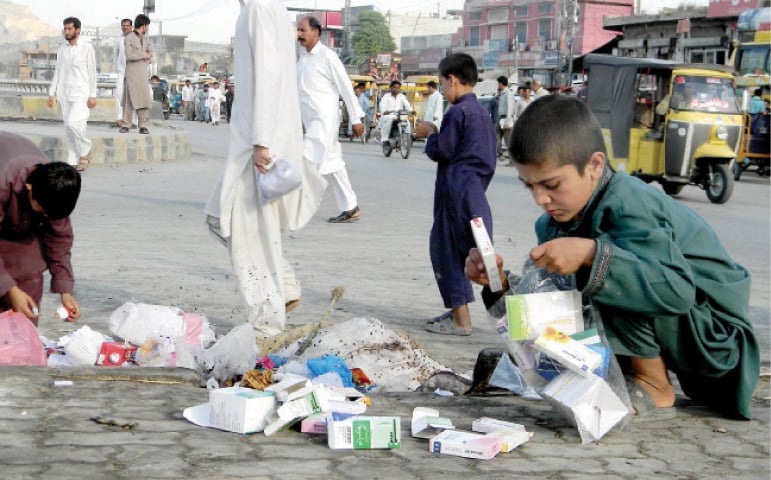ISLAMABAD – An environmentalist on Sunday says unregulated dumping of medical waste not only pollutes the environment, but also contributes to the spread of certain diseases by exposing health care workers, waste handlers, patients and the community at large to toxins and infections such as hepatitis, diarrhea, food-borne illnesses, skin infections, tuberculosis, and strains of antibiotic-resistant bacteria.
The environmentalist said due to lack of awareness, people frequently handle the waste with bare hands, raising the likelihood of spreading communicable and environmental diseases.
Talking to the private news channel, Specialist Dr Zia Ansari said, most of the public and private sector hospitals in the country were violating prescribed procedures for disposing of hazardous waste, adding, “it can spread disease widely if not disposed of properly.
He said, “some 20 to 25 percent of the total waste generated by health-care facilities is hazardous and may create health and environmental risks, which if not managed and disposed of in an appropriate manner will affect public health at large”.
The hospital wastes tend to consist of potentially harmful microorganisms that could infect hospital patients, health-care workers, and the general public if not disposed of appropriately, he informed.
He further explained that these were the scalpels, syringes, and other sharp objects used in health care activities.
These, if were not disposed of correctly, could puncture or cut their container, and then hurt anyone handling the waste, exposing them to infection.
The specialist added, syringes used for a patient could not be used for another patient, that might be obvious to all, but it was also true that in other countries of the world, used syringes and items with blood are to be burnt right away, blood bags are also something to decipher.
He warned that infected blood could spread various diseases including AIDs. Hospital waste was often found in different waste disposal sites where it really should not be, he criticized.
“When we say that we shouldn’t be a part of the pollution, then we should certainly mean it”, he said.
It was a responsibility of the hospitals to dispose of off its waste properly so that it could not cause any harm to the environment and the people, he noted.
Zia Ansari also recommended organizing awareness and training programmes for health officers and planners, hospital administrators, medical staff and environmental health officers.
Moreover, appropriate, environmental-friendly and affordable technologies should be selected for the treatment and the disposal of hospital waste, taking into consideration both technical and financial resources available in the country, he suggested.














